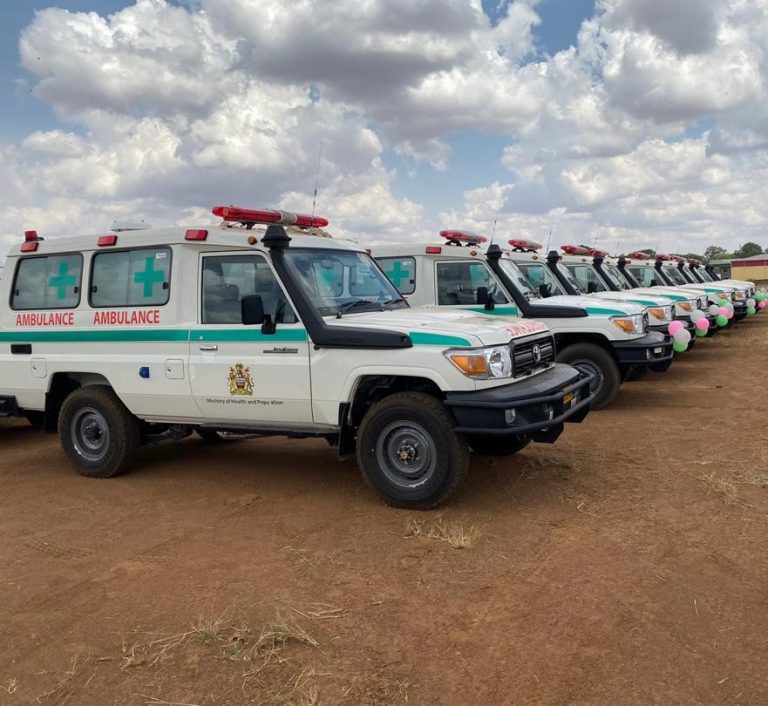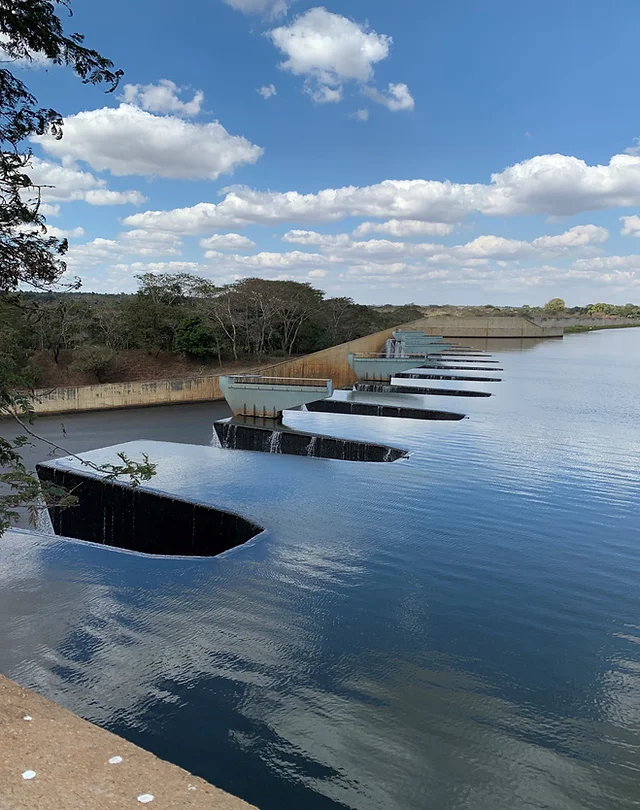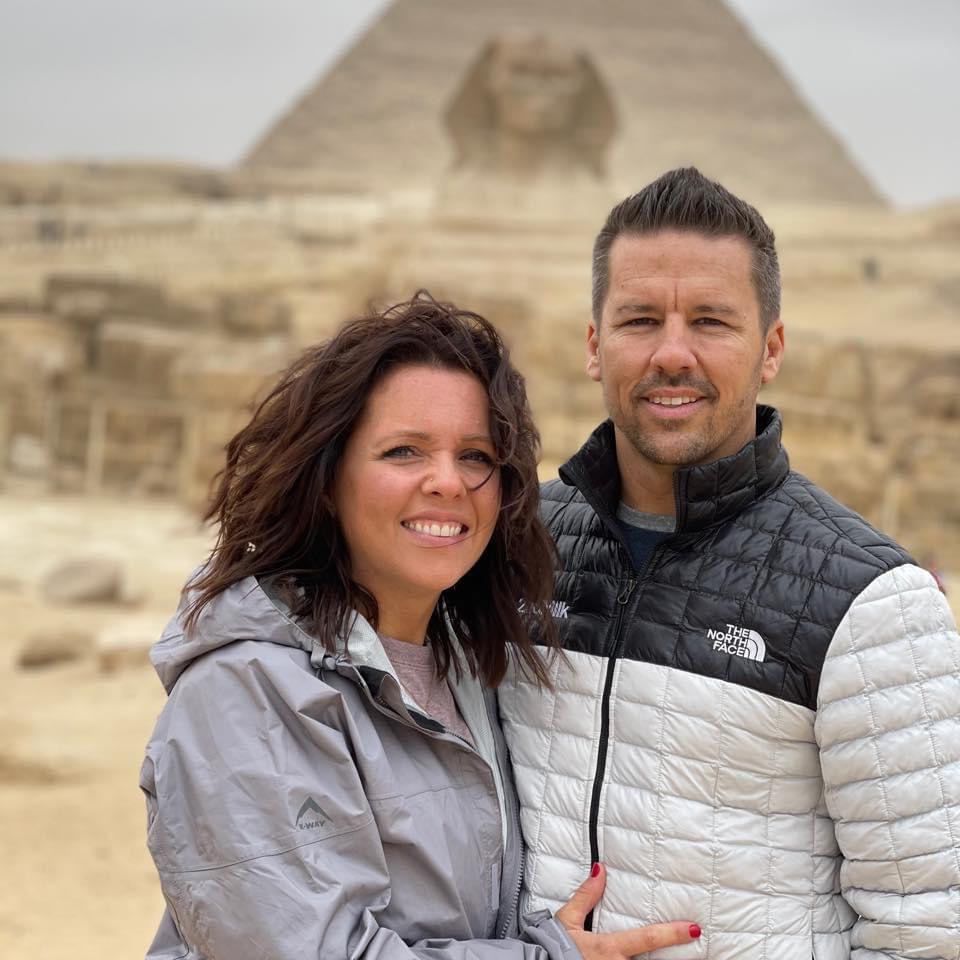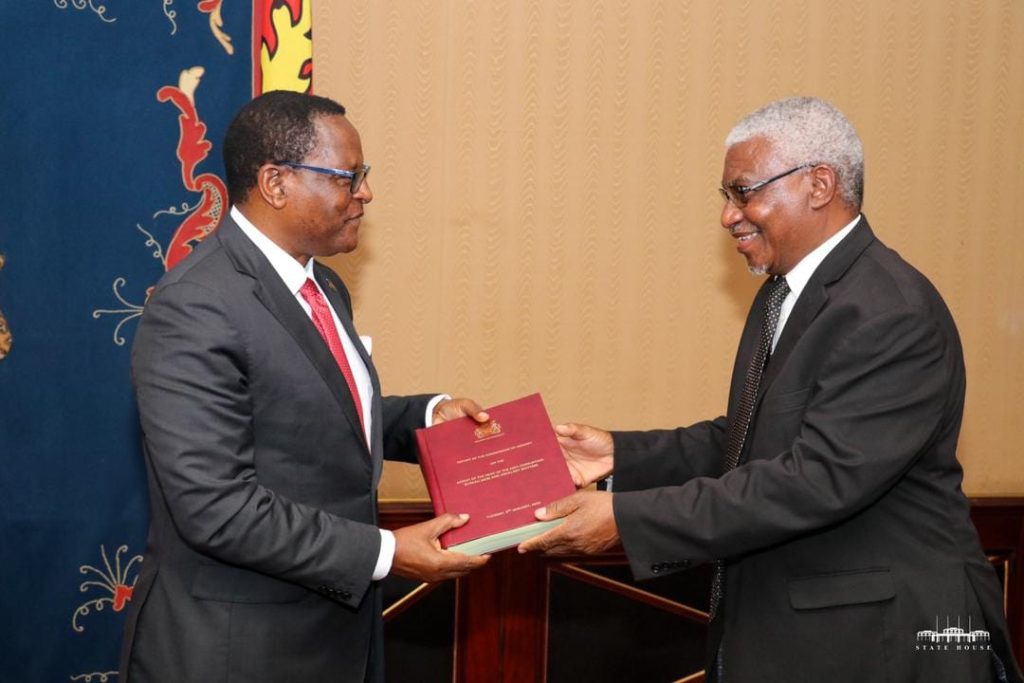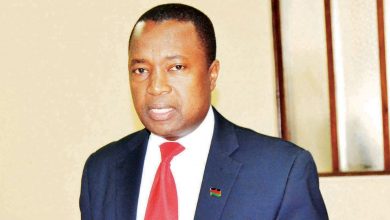BY JOSEPHINE CHINELE
PIJ investigations can reveal a fraudulent web of insurance fraudsters making money illegally from road accidents in Malawi. The country’s insurance sector estimates that between 30 and 40 per cent of road accident insurance claim payouts are fraudulent, thanks to a large-scale syndicate taking advantage of injured people.
It starts with self-appointed agents who act as middlemen between people injured in accidents, medical staff who can write injury reports and lawyers who can file claims with insurance companies.
These agents are not regulated, do not pay taxes, and operate illegally, yet they are constantly on the prowl for people injured in accidents through whom they submit claims.
Do Agents and Traffic Officers Collude?
PIJ has established that hospitals are perfect places where accident agents find people injured in road accidents. But, many also work with traffic police officers, who are usually the first on the scene and can alert agents and provide all the case details, including the contact and insurance details of drivers and anyone injured.
Traffic police deny this, but PIJ investigations can show that some officers are involved.
Once injured and identified, agents approach the victims with promises of big payouts in return for giving up the necessary personal information to make an insurance claim. While claims are usually against the driver who caused the accident, a driver working for a company with good insurance is always the first targeted prize.
PIJ had found cases where traffic police were accused of writing false accident reports to make it look like a specific (insured) driver was at fault when, in fact, it was another uninsured driver.
The police accident report is not the only document that accident agents seem to be able to get altered; the medical reports of people who are injured are also sometimes altered by cooperating clinicians to make injuries look much worse than they actually were. These reports, which can be written without the victim’s knowledge, are then submitted to law firms that continue with the legal process of claiming compensation from insurance companies for damages.

While the President of the Insurance Association of Malawi, Abdul Majeed Dyton, admits that some employees at insurance firms are also in on the fraud, he states that the public perception is that insurance companies are rich, which can encourage fraudulent claims against people they insure.
The PIJ’s investigations also point to some bank employees involved in this scam as they monitor insurance company accounts. They alert agents if there is not enough money in the account, which would delay and complicate the compensation pay out.
Compensation for successful claims is paid in the form of a cheque made out to the person injured in the accident. This means that the accident agents must take the victim to the bank to collect the cheque and pay the agent their “commission”. The PIJ’s investigations show that the commission could be up to 50% of the amount paid.
Medical Reports—Exaggerated or Forged
The PIJ investigations into clinicians forging or altering medical reports of the people injured in accidents spanned across three hospitals, the Zomba Central Hospital (ZCH), Queen Elizabeth Central Hospital (QECH) and the Machinga District Hospital (MDH).

The PIJ looked into 14 fraudulent accident claim cases. Out of these, most (10) were signed by a ZCH clinician, Abraham Nyondo. Hospital management told PIJ that Nyondo has no authorisation to write these reports. The PIJ investigations also show that Nyondo has the hospital’s official stamp and a law firm letterhead for submitting claims.
In one of the ten cases, Nyondo writes a medical report that unwittingly implicates his supervisor at the hospital, (now retired) Chief of Orthopaedics at ZCH, Dr Kondwani Michael Dzimbiri.
Dr Dzimbiri and his son, Gift, were involved in one of the accidents in which Nyondo penned a medical report to facilitate an insurance claim.
They were driving within Zomba and when they were approaching Mpondabwino Market, and they saw children playing and chasing each other around. According to Dr Dzimbiri, his son stopped the car, but one of the children bumped into their stationary vehicle. The child got up on his own, and Dr Dzimbiri and his son took him to his parents.
The next day, the doctor went to see how the child was doing.
“After the mother saw me, she called the child from wherever he was playing and complained that he was unwell after the accident,” Dr Dzimbiri told PIJ and added that he took the child to the hospital where he was examined and certified well and fit to go home.
Later, Dr Dzimbiri got a call from Eastern Region Police Headquarters in Zomba accusing him of causing the accident. Although he explained himself, Dr Dzimbiri said the officers told him to pay K17,000 to close the matter. Dr Dzimbiri says he paid the officers.
“I also later learnt that Mr Nyondo wrote a medical report on the same accident. This was interesting because it came from ZCH. I’m one of the people authorised to issue official medical reports, and Nyondo is not,” said Dr Dzimbiri.

Dr Dzimbiri’s statement prompted PIJ to contact Nyondo and ask for his side of the story. However, Nyondo was suspicious of PIJ’s motives and said that the story was not worth publishing. He also said that he was a clinician regulated by the Medical Council of Malawi and referred PIJ to their website for more details on his duties. He added that the price of the medical report was a matter for ZCH management and he could not comment further.
Nyondo also asked PIJ if they had informed his hospital director, Dr Saulos Nyirenda, about their investigation. He said that they were in a better position to answer questions about the procedure and prices of medical reports. He then requested PIJ to send him written questions. PIJ complied, but did not receive any response from Nyondo since March 3. Nyondo also ignored PIJ’s calls and WhatsApp messages asking for his comments on the allegations against him.
Dr Nyirenda said that he had only dealt with one case of a fake medical report since he became director. An insurance company had come to verify the stamp used on a claimant’s report and found out that it was not genuine. He said that they tracked down the culprit and took disciplinary action against him.
He also said that it was hard to catch the wrongdoers because people were reluctant to testify or provide evidence. He said that some clinicians were involved in such malpractices and protected each other.
Dr Nyirenda explained that the hospital had a system where only specialists could write medical reports. In areas where there were no specialists, only authorized clinicians could write reports about accident victims.
“People are doing this secretly; it’s hard for me as director to know. This then becomes difficult for us to discipline perpetrators without tangible evidence,” said Dr Nyirenda.
Dr Nyirenda pointed to another weak link in this system. Accident victims must pay hospitals for a medical report that can be issued for an insurance claim. The cost is K10 000 per report, paid to the hospital and issued with a Government Receipt (GR). But this only sometimes happens. Sometimes they did not get a receipt, or they were tempted by agents who promised them large compensation claims. He said that this made it difficult for the hospital to monitor the issuance of medical reports.
As a security measure, Dr Nyirenda explained, the hospital established a system where only specialists could write medical reports. In areas where there were no specialists, only authorized clinicians could write reports about accident victims.
Accident Agent
The PIJ talked to three accident agents. They all claim that they are not ambulance chasers. But they admit that they assist people who are injured in road accidents to file insurance claims and charge a fee for their services.
Agent Steve Nseula, who has been in this business for 16 years, told the PIJ: “People got to know me when I worked for a law firm. Those who I helped to get compensation referred me to others. People have a choice to work with me or not. They can work with other agents or handle their own accident injury matters.”
“We get reports from the police; that’s the only connection we have, nothing more. Accidents are unpredictable… I charge ten per cent (of the compensation amount) as reimbursement for the airtime, fuel, medical report fees and other costs incurred in processing the client’s cases. Clients don’t pay anything until they receive their compensation. The cheque is issued in the client’s name; the lawyers’ fees are separate,” he said.
Nseula told PIJ he has been getting the medical reports at K10,000 from Nyondo at Zomba Central Hospital. However, PIJ could not verify if the receipts given for these payments were valid.
Thondwe Police Implicated Zagaf
In one case, Nseula assisted a claimant (Annie Belson) in claiming damages for an accident that killed her husband, Richard Belson, who passed away, at Seven Miles in Zomba on 12 December 2021.
There are two different versions of what happened that day. The truck company, Zagaf Transport, believes that police altered the accident report to pin the blame on one of its drivers, knowing he is insured. Zagaf also believes that the police linked Belson’s family with Nseula to assist in processing a compensation claim.
Zagaf Transport admits that one of the company’s freight trucks knocked into Belson, who was on a motorcycle, but it is adamant that Belson was not hurt. He got up and picked up his motorcycle after the accident. As he was doing so, the transport company says, a Toyota minibus hit him, killing him instantly.
Thondwe’s police report tells a different story. It describes how the Zagaf truck killed Belson, not the minibus.
Traffic Sub Inspector Andrew Suta, who investigated the case and testified in court as a state witness, insists the truck killed the victim, describing it as a hit-and-run incident.
He denied allegations that the police connived to remove the minibus from the accident report and that the police linked the family with an agent.
“Those who have evidence that the minibus killed Belson should bring it forward to us… The police don’t work with agents; it’s not our duty to link victims with agents. It’s the families themselves that do that. All we do is sell them the police reports at K5,000. We do that upon request.”
Suta disclosed that this case is still in court after a year.
“Nothing is happening. The driver doesn’t even come to the court,” he lamented.
While Zagaf insists that its driver has been in court except for once when he was ill, the company wrote a letter of complaint (dated 14 January 2021) to the Regional Traffic Officer (Eastern Region Police). The company cites two accidents as examples of how its drivers are deliberately and wrongly implicated. One case involves a driver who was stopped at a police roadblock in Mangochi and accused of killing a cyclist. Another is where a Zagaf driver was accused of killing a pedestrian. According to Zagaf’s letter, the police could not produce details of both accidents or registration numbers of the trucks.
The letter, signed by Zagaf Managing Director, Aslam Abdul Gaffar, states:
“This made us believe that we are just victims of unverified accidents. We have several examples of these bogus accidents that end up with lawyers’ summons. One wonders how an ordinary villager would have details of a lawyer after an accident before making claims from an insurance company.”

Zagaf Transport Operations Officer, Mavuto Missi, confirmed that this letter was from his organisation. He warned motorists to ensure that they report any accident to the police, however minor it may be, because such accidents may resurface years later with exaggerated claims.
“We are not saying accidents don’t occur. But in normal circumstances, things don’t happen like this. It’s surprising how a typical villager who is a victim gets access to lawyers’ contacts. When one gets a police report, they take it to the insurance company, where necessary compensation arrangements are made. But these people take the claims to the lawyer as if someone has refused to pay them. Why?” he questioned.
Missi said the police are supposed to check insurance details and advise the victims, but they instead give numbers to agents or lawyers who take the matters to court.
“We pay insurance companies to be covered, but we are always dragged to court over unexplained accidents. Sadly, the police are perpetuating this. We have never been dragged to court by fellow motorists but cyclists and pedestrians,” he noted.
Eastern Region Traffic Police Head Blank
Regional Traffic Officer for the Eastern Region, Augustine Chakanika, said he knew very little about the issues raised by Zagaf and claimed he had never received the letter of complaint from the company.
“There’s no room for police report exaggeration or working with agents… I have been in traffic for over 20 years and have never heard of such… Maybe you have more information on this; please furnish us, so we take appropriate action. We need such information to crack the syndicates,” said Chakanika.
Zagaf’s insurer is Libertas General Insurance Company Limited. The insurer’s CEO, Abdul Majeed Dyton, also President of the Insurance Association of Malawi, dismisses all allegations of impropriety. He also dismissed allegations that the company pays out K200,000 to claimants for them to withdraw cases.
“When we get claims, we also do our investigations. In the process, we learn that most clients are unaware these law firms represent them. It’s the agents that deal with them.”
He added: “The claimants have the right to take legal action against us if such happens. We have never been sued for such, which means it’s not true.”
Dyton does, however, admit that there are loopholes in the insurance industry system.
“The fraud is getting worse. Sad to note that our claims department employees are also part of the syndicate. Internally you can put all controls, but if a company has such employees, that’s a major loophole,” Dyton revealed.
Agents and Ambulances
Elita Site is one of the accident victims who sought compensation for her injuries with the help of Shaerif Mponda, an accident agent. She does not know how he got her information or the police report. She said many agents approached her in the hospital and offered their services.
Site said: “They probably go to the accident scenes or have connections with the police. I think Mponda also knows some police officers. I don’t know how he got my number.”
Site said the police told her and the other injured people not to claim anything because they were not supposed to be in the truck that crashed in June 2021.
Site told PIJ that she and the others agreed to pay Mponda 20 per cent of their compensation. But she is worried that she might lose her money and wants to know more about the process and the lawyer handling her case.
“I don’t know my lawyer, but Mponda is in charge of everything… I have heard stories of lawyers taking people’s money… I asked Mponda for a written agreement to avoid this, but we don’t have one,” she said.
Mponda admitted that he was working on Site and her colleagues’ cases and said he had over 100 lawyers for similar cases. He denied getting the case from the police and said it was a referral from his previous clients.
“I’m a busy person…. I don’t chase ambulances. I have many ways of getting clients. Many people know me, so they call me when there is an accident and I follow up later. I sometimes give out my business card at markets, so people can call me when there is an accident. I don’t force anyone to work with me,” said Mponda, who charges 15 to 20 per cent of the compensation and says he gets clients when he visits relatives at hospitals.
Mponda said he also educates people about their rights to compensation for any kind of accident injuries, not just road accidents.
Sam Phiri, the Traffic Officer who handled the case of Site and her colleagues, said he knows Mponda but has never worked with him on this or any other case.
He said agents often come to police stations looking for accidents but the police do not cooperate with them.
“They make the process very long because they are not lawyers. There are too many agents around. The police only give out a police report after the investigation.”
Machinga District Hospital Involvement
A minibus driver claimed that nobody was hurt in an accident he had at Four Miles in Zomba in April 2022. But the traffic police report said the conductor and a passenger were injured.
The conductor, Victor Nyetani, said he was fine and did not follow up on the matter. He said he had no injuries and did not go to the hospital or the police after the accident. His driver paid a fine to the traffic police who came to the scene.
The next day, a passenger who was in the minibus, Zimveka Ibrahim, went to the hospital with an agent named Chimbalanga to get a medical report for a claim.

The agent took Ibrahim to Machinga Hospital instead of Zomba where the accident occurred. He told Ibrahim he would charge 30 per cent of the compensation.
PIJ found out that Ibrahim got a medical report from Maxwell Kananji, a clinician intern at the hospital.
Kananji told PIJ that he treated Ibrahim at the casualty ward and recorded his condition in his health passport. He said he did not give him a medical report or sign anything falsely.
“I’m not allowed to write medical reports; only the District Medical Officer and other senior staff can do that,” Kananji said.

The traffic officer on the scene of this accident is Officer Makanjira. She denied referring Ibrahim to agent Chimbalanga and refused to give PIJ her full name.
“Agents are all over; in most cases, these people meet independently, and their issues don’t concern us. Agents collect files and police reports and take them to lawyers. I don’t know what follows next in that process,” said Makanjira, who initially told PIJ she could not remember the accident details. However, later she said that she had only asked Ibrahim and the conductor to go to the hospital because they complained of body pains.
“There were many people at the accident scene, but only these two complained of body pains, hence my suggestion. If we pushed them to the agent, this conductor would have their report,” she said.
Hospital Fraud
Agents and traffic police often go to the emergency ward at Queen Elizabeth Central Hospital, known as “ku Ngozi”, to offer their services to accident victims.
For instance, Daniel Cosman, a Blantyre traffic police officer, connected an accident victim, Elias*, to Sabo Kunje, an agent. “He (Cosman) seems to help many people. He came to the ward often when I was in the hospital for almost two months,” said Elias*, who Kunje contacted.
Cosman told PIJ that he knows Kunje but said he does not refer victims to him.
“When victims ask for help to get compensation, we show them the agents, who are always around Blantyre police station waiting to help people. We don’t persuade victims to go to agents. We only help those who ask because they may not know the process. But we don’t get involved in their deals. There are many agents around, including women,” he said.
Cosman said Kunje is a famous agent in Blantyre.
Cosman, who now works at Regional Police Headquarters, said Kunje is not dishonest and has helped many people get their compensation.
Kunje’s effort to get Elias* compensation worked. Elias* said he was invited by Mlauzi Legal Solutions, a law firm, to get his cheque. He saw Kunje there when he went to the lawyers’ offices.
“This was strange… I didn’t call him. I think the law firm did! They said they don’t pay them, but I think the agents also get money from the law firms,” said Elias*.
Dumisani Mlauzi, the Managing Partner at Mlauzi Legal Solutions, said he does not know Kunje or deal with agents in his Firm’s work.
“I don’t know Mr Kunje… We have many lawyers. Maybe another lawyer was working with him. By law… Lawyers can’t share their fees with anyone else like agents,” he said.
Mlauzi said his firm mostly handles business and corporate clients but admitted to having some personal injury cases. He said clients come to the Firm directly without agents.
At QECH, clinicians said they get over ten requests a day from agents for medical reports. To prevent abuse, QECH decided that only a few senior doctors or clinicians could write medical reports. But abuse still happens.
For example, in one case, clinician Godfrey Ghambi wrote a medical report after agents persuaded him. He did so but clearly said in the report that he was not authorised. (Document available)
The QECH director at the time, Dr Samson Mndolo, told PIJ that his office had seen some dubious medical information, including some with signatures that could not be verified in the hospital’s system. That is why the hospital chose a few senior staff to write these reports for accident victims.
“The problem with this is that some people who did not treat the patient may write a report…the best report is by the person who treated the patient,” he said.
Dr Mndolo said insurance companies know who are authorised to write these reports. So they should know that reports signed by anyone else are not valid.
“I don’t know how many clinicians have been punished for this. Some have been handled locally and others have been reported to the Medical Council. The issue is that some signatures do not belong to anyone at QECH. Even the names are fake.”
He said: “If an insurance company or anyone doubts a medical report, the best way to find out the source is to question the person who has it. They know where they got it from.”
The Medical Council of Malawi said it got four complaints out of 32 in the last quarter about clinicians’ misconduct in giving out fake medical reports for claims.
The council said only registered practitioners with valid qualifications can issue medical reports. But it has received complaints about fake reports.
The Council’s CEO and Registrar, Doctor Davie Zolowele, said the council recently had 18 hearings for misconduct, 15 of which were about fake insurance claims.
“The Council punishes and holds such practitioners accountable to stop people from giving out fake medical reports. We have a code of ethics that all practitioners have for reference,” he said but did not tell PIJ what actions had been taken against doctors for malpractice or fraud.
Banks Involvement
Another accident victim, Samuel*, who asked to remain anonymous, said agent Sabo Kunje wanted K500,000 to help him get compensation. The lawyers’ fee was extra.
He got his claim and received K2.4 million. The lawyers took their share and Samuel* paid the agent K200,000 after bargaining with him. Samuel* got K1.4 Million.
“The agent went with me to the bank. He said he needed to pull some strings inside the bank to make sure the cheque did not bounce because that happens a lot. He called his ‘bank informant’, who took the cheque to see if the insurance company had enough money for me to withdraw. She came back and said it was not clear to withdraw and said she would contact the agent when the account was clear,” he said.
The next day, Kunje told him to go and cash the cheque. He also told him to give his K200,000 and K10,000 to the security officer in the bank as a thank you for his help, “Which I think he might have shared with the other bank informant.”
Samuel told PIJ he knew many people whose cheques bounced back because the insurance company did not have enough money in their account.
Kunje admitted that he had been an agent but said he helped his last victim in December 2022. He did not want to answer our questions. He said he was in a loud place when we first called him. After that, he did not answer or reply to our WhatsApp messages.
Lawyers’ Involvement
Lawyers in Malawi are not allowed to work with accident agents, not only because these agents are not regulated.
“The practice of law shall not be part of any partnership’s activities if a non-lawyer is a partner,” says the Lawyers’ Code of Ethics.
Patrick Mpaka, the president of Malawi Law Society MLS, said insurance companies often accuse lawyers of being involved in insurance fraud, but they never prove their claims.
“MLS has a strong and working disciplinary system that can deal with complaints against its lawyers. We have not had any complaint about fake claims by any of our lawyers, either in the last year or before that,” he said.
The PIJ’s attempt to talk to lawyers about this matter got different reactions. Some agreed to talk and others doubted the PIJ’s credibility.
For example, Lawyer Lester Mwantisi of TJM and Associates was very uneasy and suspicious of our investigations. He wanted a face-to-face interview. When the PIJ met him for more than an hour, he answered all our questions but said the interview was off the record. He then asked us to send questions on WhatsApp for him to answer officially with his partner.
Later, he told PIJ that he showed the questions to other “senior” journalists outside PIJ, who “told” him that the questions were pointless and that PIJ did not know what it was doing. During the “off-the-record interview”, he admitted many agents brought accident cases to the law firm. Mwantisi told PIJ that the insurance sector is cheating clients by only paying the law firms and not paying the clients. Mwantisi said about five clients’ cheques bounced at the banks.
Mwantisi stated that insurance companies pay law firms through direct bank transfers, but not the clients. This has caused clients to hold law firms responsible for these matters. Initially, the money was paid to the law firm, which then paid the clients. Mwantisi expressed dissatisfaction with this situation and stated that they want the clients to be assisted.
“We are not happy. If they are satisfied, they give us more clients through reference. This is affecting our business,” he said.
Mwantisi also accused insurance companies of bribing accident victims with K200,000 to settle cases with lawyers. He specifically mentioned Liberty Insurance, stating that they often approach clients and offer them K200,000 in exchange for signing case withdrawal documents. Mwantisi mentioned that they have had clients complain about this situation, stating that they were paid K200,000 when their case was worth millions.
Liberty Insurance said all these are lies.
Prime Insurance Denies Claims
Mwantisi claimed that Prime Insurance Company was the main culprit in issuing bounced cheques, but he could not provide evidence or connect us with any affected clients.
However, the insurance company disputed these claims.
Owen Chihana, the Chief Executive Officer of Prime Insurance Company, stated that this was news to him and not true.
He explained that they issue cheques to lawyers and not direct transfers. Sometimes they ask claimants to provide their account details and do direct bank transfers because it is quicker. He also stated that it is not true that their cheques to claimants are bouncing at the banks.
For medical reports, Mwantisi said that the law firm works with trusted clinicians at QECH, such as Mrs Junia Kazembe or Mr Master Yesaya, who are certified to provide accident medical reports in the southern region. He insisted that they are incorruptible clinicians.
Kazembe told PIJ that QECH management certified her and Yesaya to issue medical reports related to compensations and that they are only allowed to write those related to compensations.
The Kadango Family of Mangochi
Kadango family of Mangochi was surprised to learn that Mwangulube and Company law firm was representing them for accident claims at an insurance company after their child was killed by a speeding vehicle in July 2022. It is suspected that an agent worked with a family member to pursue the claim.

“Ine ndi Zione Lucky mwini wake wa mwana. A Mwanguluwe sindikuwadziwa ndikufuna mundithandize ndinu….” (I’m Zione, the deceased’s mother. I don’t know Mr Mwanguluwe I want you to assist me) reads part of the statement from the family distancing itself from Mwangulube and company’s representation. The Kadango family confirmed the incident to PIJ.
But Lawyer Golden Mwangulube of Mwangulube and Company denied imposing himself on this case or being an ambulance chaser.

Mwangulube stated that most cases are referred to him through friends and relatives of the victims.
“I’m just a lawyer; how do I know of accidents? Agents do ambulance chasing, and I don’t work with them,” he said.
He also stated that the Kadango family’s case was referred to his law firm by relatives and that he never approached them.
Mwangulube claimed that most lawyers in town, almost 90% of them, deal with accident claims. He said that it is part of their job, but they do not do ambulance chasing and people find them in their offices.
Earlier this year, Mwangulube and Company law firm was forced into the limelight after successfully assisting a client to be awarded K2 million in insurance claims using forged documents.
Some lawyers we interviewed confirmed working with agents in one way or another but refused to have any official arrangements with them.
The lawyers indicated that due to the nature of their duties, they could not go on the streets to look for accidents, but agents are always on the ground.
However, they allegedly do not pay them for this. The clients arrange for their payment after compensation.
The case files from clients through agents come with medical and police reports, which are trusted to be authentic. The lawyers claim it is difficult to verify police and medical report details since no phone numbers exist, but they work on their client’s trust.
However, this process could be subjected to more fraud.
In one case, some residents claimed to have been involved in an accident in Mdeka. While there are questions about whether they were involved, they were included on the claimant list for insurance compensation.
The victims told PIJ that the case is handled by ‘agents’ Russel Smith and Associates.

Lawyer Nickson Masiku from Russel, Smith, and Associates confirmed representing the victims and that the case is still in court. He, however, was not willing to divulge more details on his law firm’s work with agents on the phone. He insisted on a personal interview.
“The case is in court. The defendants haven’t been coming to court several times, but I can assure you that this is not a fake claim…..come to my office to discuss this,” he told PIJ.
Historical Issue
PIJ has established that the insurance sector and lawyers have been at loggerheads over lawyers’ involvement in insurance fraud for over a decade.


In 2011, after the Insurance Association of Malawi brought this issue to the attention of the then Chief Justice, the late Lovemore Munlo, who had several engagements with the sector and challenged the insurance sector to provide evidence of the alleged unethical conduct.
But President of the Insurance Association of Malawi, Abdul Majeed Dyton, said this engagement has been very frustrating, saying the sector’s evidence report has been submitted to the Chief Justice’s office several times, but it has been ‘missing’.
“After Munlo left office, we tried to follow up on the issue with his successor, who told us he couldn’t see the initial report we submitted. We gave him our remaining copy, which has also apparently gone missing.”

“Since years have passed, we are currently compiling a new report which we plan to present to the current Chief Justice,” said Dyton, who estimates that up to 40 per cent of insurance accident claims are fraudulent. He pointed out that there is a widespread myth that insurance companies have a lot of money, yet in 2021 the insurance industry collectively made a loss, “the sector is bleeding due to fraudulent claims.”
* Not real name

